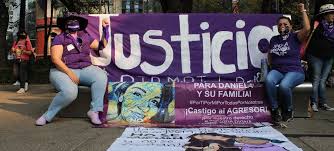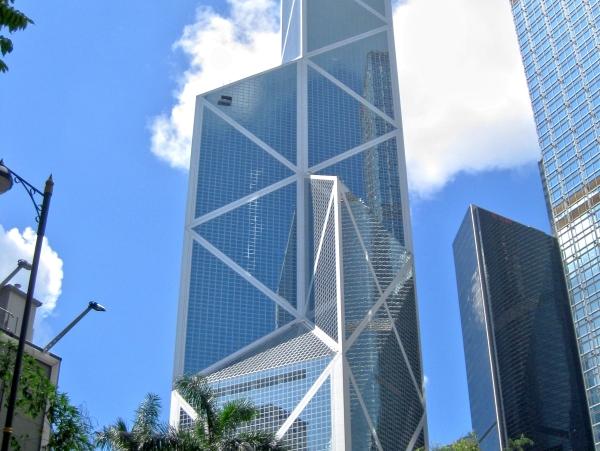A killer pig eats the magazine, they masked it
“I paid for the heat and the light, I bought an oily liquid and two daily snacks, I stocked up on drugs, because, the newspaper wrote, the killer flu is coming, it will kill me and I won’t die! Hey, aver, let’s turn her into a big frothy liquid, and you blow for last night’s tender lamb!”
Have you ever heard a normal Bulgarian speak this way? You won’t even hear. According to the media, however, he speaks (“inflates”, “snorts”) just like that. Steam is “warm”, electricity – “light”, bread – “meal”, “samun” or “pogacha”, oil – “fatty liquid”, beer – “foamy liquid”, water – “living liquid” or simply “H2O “, the medicines – “lek”, “tsar” or “ilachi” (as it turned out, tomorrow instead of “doctor”, we will read “hekimin”).
About the “tender lamb” – later.
According to the media, terrifying mass murderers roam Bulgaria, stalking us around every corner, waiting for us around every turn: “killer train”, “killer truck”, “killer bus”, “killer route”, “killer stop”. , “killer bridge”, “killer curve”, “killer elevator”, “killer dam”, “killer ship”, “killer house”, “killer wall”, “killer boiler”, “killer iron”, “killer pressure cooker”, “killer slide”, “killer swing”, “killer tree”, “killer flu”, “virus -killer”, “dog-killer”, “cow-killer”, even – “pig-killer” (there is also such a registered case).
Otherwise, there are no murderers in Bulgaria – there are “killers”. They don’t shoot someone – they “blow” or “blow” him. They will not slaughter him – they will simply “cut” him. They don’t beat anyone – they “thrash”. There are no thieves – there are Apaches. There is no prison – there is a “dungeon”, “pandiz palace” or simply “the bars”. There are no prisoners – there are “pandizchii”. There are no criminals – there are “well-dressed businessmen” (actually – poorly dressed mutts).
Victims have names, criminals have initials and/or nicknames. Victims usually “take a soul”. When the victims are children, the newspapers produce the most disgusting headlines. For example: “A rapist fornicates with a 3-year-old”! What a “3-year-old”, you jerks! It’s a 3-year-old girl! For a child! However, there was no room, the title took a long time to come, so that’s it.
In Bulgaria (according to the media), a 17-year-old girl is a “young woman”, a 25-year-old man is a “young boy”, and everyone over 40 years old is “grandmothers”, “grandfathers”, “old men” and “old women”.
The attitude towards women is consumptive – she is a commodity to be acquired or a steak to be eaten, basically – a disposable thing. The young woman is the “tender meat” or the “tender lamb”. Recently, young men have also become the object of consumption – “Grandmothers cry their eyes out with a young lamb” or “Alla Pugacheva settles down with a young lamb”.
Once upon a time, nothing special happened in Bulgaria – the Politburo produced “concepts” and “multiplications”, international meetings were always “fruitful, in a friendly atmosphere” and these meetings invariably confirmed “eternal and unbreakable friendship” (with the USSR) and “fraternal friendship”. (with other socialist countries).
And today nothing is happening in Bulgaria. Because usually something is “whirling” – “scandal”, “party”, “show”, “party”, “intrigue”, “gossip”, “affair”, and also – “debate” (mandatory in the singular).
But the most beloved, the most enchanting, the sweetest word is “scandal”. When you run it on the search engine, 7 million 230 thousand texts come up! There are all kinds of scandals. Noisy, tasty and spicy: “gay scandal”, “porn scandal”, “lesbo scandal”, “sex scandal”, “erotic scandal”, “pedophile scandal”, “religious scandal”, “party scandal”, “spy scandal” , “VIP scandal”, “political scandal”, “corruption scandal”, “police scandal”, “VAT scandal”, “BSP scandal”, “yellow scandal”, “blue scandal”, “Meverei scandal” and so on. In principle, scandals, as well as affairs, have the property of “exploding”, “thundering”, “cracking”, “shaking” and “shattering”.
Scandal, sensationalism, intrigue, gossip, slander, feigned falsehood, insidious half-truth, and outright vulgarity triumph on the pages of newspapers in direct text, subtext, and context.
Nobody thinks in Bulgaria. On the other hand, some people “want” (money, verdicts, retribution, resignations), “stop” (money, projects), “release” (money, steam), “raise” (prices, taxes), “lower” ( salaries, leaders), “remove” (files, compromising materials), “freeze” (pensions), “destroy” (affairs and scams) and above all – “think”. Political leaders do not meet – they go “to see”. They don’t talk – they “talk” and “conspire”. They do not conduct negotiations, but “candarmi”. After which, invariably, their “rezil” shines, and at the same time – “dibidus”. And then, collectively and individually, the leaders in question go to complain to some “embassy” or “to Europe”, where “Brussels” awaits them. And because “Brussels” is initially “embarrassed”, “concerned”, “stunned”, “shocked” and “angry”, it simply “picks up” and “picks up” them, “reprimands” them “condescendingly”, and above all – “takes”, “stops”, “freezes”, “wants” and “presses”.
In the 20 years since “democracy broke out”, the outlaws have been turned into “Iduks-who-eat-roasted-lambs-on-green-lawns-and-wait-for-Russia-to-liberate-us”; the anti-fascists – in “thugs-who-rob-dairies-and-wait-for-the-Red-Army”; Botev and Levski are “terrorists” and “boys with deviant behavior”; The holy brothers Cyril and Methodius are at best “Byzantine officials”, at worst – “Byzantine spies” and, of course, they have nothing to do with any alphabet, and if they happen to have, then this alphabet is “a symbol of the Russian boot”. As for Saint Prince Boris the Baptist – we don’t know whose spy he is because they haven’t pulled out his file yet…
The school is a “school”, the teachers – “daskals”, the clergy – the “priests” or “kalugers” (who usually “pluck their beards”), since the writers do not distinguish between a priest, a monk and a bishop.
People of the spirit (scientists, poets, writers, artists, theater artists, etc.) are “foodies” who “eat the people’s money” and “get rich on our backs”. However, prostitutes are “working girls”, and chalga-singers – “pop icons” and “folk divas”.
The emanation of the cop-chalgarized statement, the luminary of the mutro-mafia style is “Bat’Boyko”, before whom the media servitude faints in a slavish manner. But this topic deserves separate attention, because it is vast – like the simplicity of their father Boyko.
On top of that, there is not a single normal person in Bulgaria – they are all maniacs. Everyone is devoted to his obsession: “cinemamania”, “bookmania”, “musicomania”, “mesomania”, “winemania”.
Journalism is an incredible, impossible, poisonous mixture of 5 jargons and 1 language. The jargon of the street, the jargon of the criminal world, the jargon of the politicians, the jargon of the chalga, and the jargon of the computer. And the language is Bulgarian, but from the 19th century, which in itself would have been comforting, because it is the language of our revivalists. If they didn’t desecrate him to death.
And when you open a newspaper, all kinds of “trash”, “scumbags”, “communyags”, “national traitors”, “gang of robbers”, “pedophiles”, “gays”, “bisexuals”, “transsexuals”, “unbridled” fall on you types” and so on “bandyuks” who raise the prices of “warm and light”, of “Ilacha and Samuna”, pretend to be “miskins” and “disguise” each other, they “introduce” bills, visions and concepts, go to “views, meetings and sit-ins”, to “candarmes” and “embassies”, meet with “nationals”, bring them “armagans”, and by the way, in their free time “log”, “update” and “copy page”, but otherwise they cry about “grids” and “stripes”.
And the journalists themselves call themselves “the magazine”…
Happy holiday of the Bulgarian Word…
#language #sacred.. #View #Info
In what ways does the article’s analysis of Bulgarian media resonate with, or differ from, discussions about media bias and manipulation in other countries and cultural contexts?
This article offers a scathing critique of Bulgarian media and language, highlighting its sensationalism, biased language, and distortions of reality. Here are some open-ended questions to spark discussion based on the article’s key themes:
**Language Manipulation:**
* **The author argues that Bulgarian media relies heavily on jargon and emotionally charged language. How does this language use impact the way people perceive news and events?** Do you think sensationalism is necessary to grab attention, or is it detrimental to responsible reporting?
* **The article cites examples of euphemisms and nicknames used to refer to criminals and victims. What are the implications of this language?** Does it dehumanize individuals or obscure the severity of crimes?
* **The author points out the overuse of certain words and phrases like “scandal,” “conspiracy,” and ”think.” How might this repetitive language shape public discourse and understanding?**
**Sensationalism and Presentation of News:**
* **The article criticizes the media’s focus on scandals and negative stories. Why do you think this type of news coverage is prevalent?** What are the potential consequences of this focus for society?
* **How does the author’s description of Bulgarian media compare to media in other countries?** Are there universal trends in media sensationalism, or are there cultural factors at play?
**Historical Distortion and Manipulation:**
* **The article mentions the reinterpretation of Bulgarian history and figures. How can historical narratives be manipulated through language and media?** What are the dangers of rewriting history?
* **The author accuses the media of demonizing certain groups, like “anti-fascists” and “terrorists.” How can such labeling influence public opinion and lead to prejudice?
**Impact on Society and Culture:**
* **The author expresses concern about the “simplification” of language and thought in Bulgarian media. What are the broader implications of this trend for society?**
Does it hinder critical thinking and informed decision-making?
* **What role do you think citizens should play in promoting responsible and ethical journalism?** What are some ways to encourage diversity of perspectives and critical analysis in the media?
These questions are just a starting point for a deeper exploration of the issues raised in the article. By engaging in thoughtful discussion, we can begin to unpack the complexities of media bias, language manipulation, and their impact on our understanding of the world.


